Hey, Labrador lovers! 🐾 Today we’re focusing on our beloved senior Labs and how to help them manage the pains of arthritis. As our furry friends age, they often experience joint pain and stiffness, but that doesn’t mean their quality of life has to suffer. Here are 11 Easy Tips for Managing Arthritis in Senior Labradors.

| 🐾 Tip | Description | Benefits |
|---|---|---|
| 🐕🦺 Recognize the Signs Early | Early detection of stiffness and reluctance to move. | Enables early intervention and management. |
| 🌿 Diet and Nutrition | Proper diet and supplements like glucosamine. | Supports joint health and can reduce inflammation. |
| 🏋️♂️ Maintain a Healthy Weight | Keeping weight down to reduce stress on joints. | Decreases joint pain and improves mobility. |
| 💊 Appropriate Medication | Use of NSAIDs and other vet-prescribed meds. | Reduces pain and inflammation. |
| 🧘♂️ Physical Therapy | Professional therapies and daily gentle exercises. | Increases flexibility and decreases pain. |
| 🚶♂️ Gentle Exercise | Regular, low-impact exercise. | Keeps joints mobile without overstrain. |
| 🏠 Create a Comfortable Home | Accessibility improvements and supportive bedding. | Enhances daily comfort and ease of movement. |
| 🕶 Keep Them Warm | Keeping the dog warm to ease joint stiffness. | Reduces discomfort during cold, damp days. |
| 🔍 Regular Monitoring for Changes | Observing and noting changes in mobility or pain levels. | Allows timely adjustments in management strategies. |
| 🧽 Massage Therapy | Regular gentle massage to increase blood flow and relaxation. | Helps alleviate joint pain and reduces stress. |
| 📋 Consider Alternative Therapies | Exploring acupuncture and chiropractic care. | Offers additional options for pain relief. |
🐕🦺 1. Recognize the Signs Early
Know What to Look For
Arthritis can sneak up on many dogs as they age. Look for signs like reluctance to go for walks, difficulty climbing stairs, or a noticeable stiffness after resting. The sooner you notice these signs, the sooner you can take action.
Regular Vet Visits
Schedule regular check-ups with your vet to catch arthritis early. Early diagnosis is crucial to managing arthritis effectively and can help prevent further joint damage.
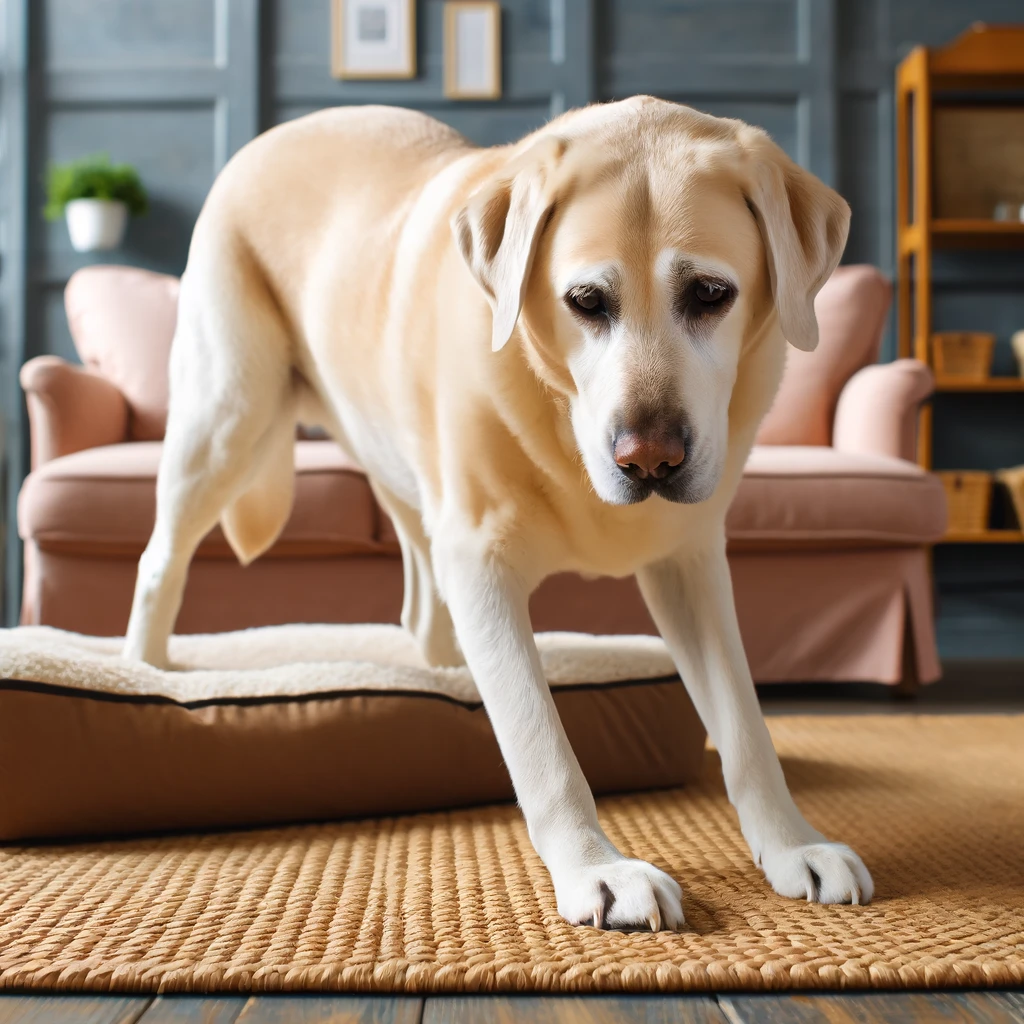
🌿 2. Diet and Nutrition
Feed the Right Food
Ensure your Labrador’s diet supports joint health. Foods rich in omega-3 fatty acids, like fish oil, can help reduce joint inflammation. Discuss with your vet about specialized senior dog foods that support joint health.
Supplements Can Help
Glucosamine and chondroitin supplements are widely recommended for joint health. They can help repair and reduce the deterioration of cartilage in the joints.
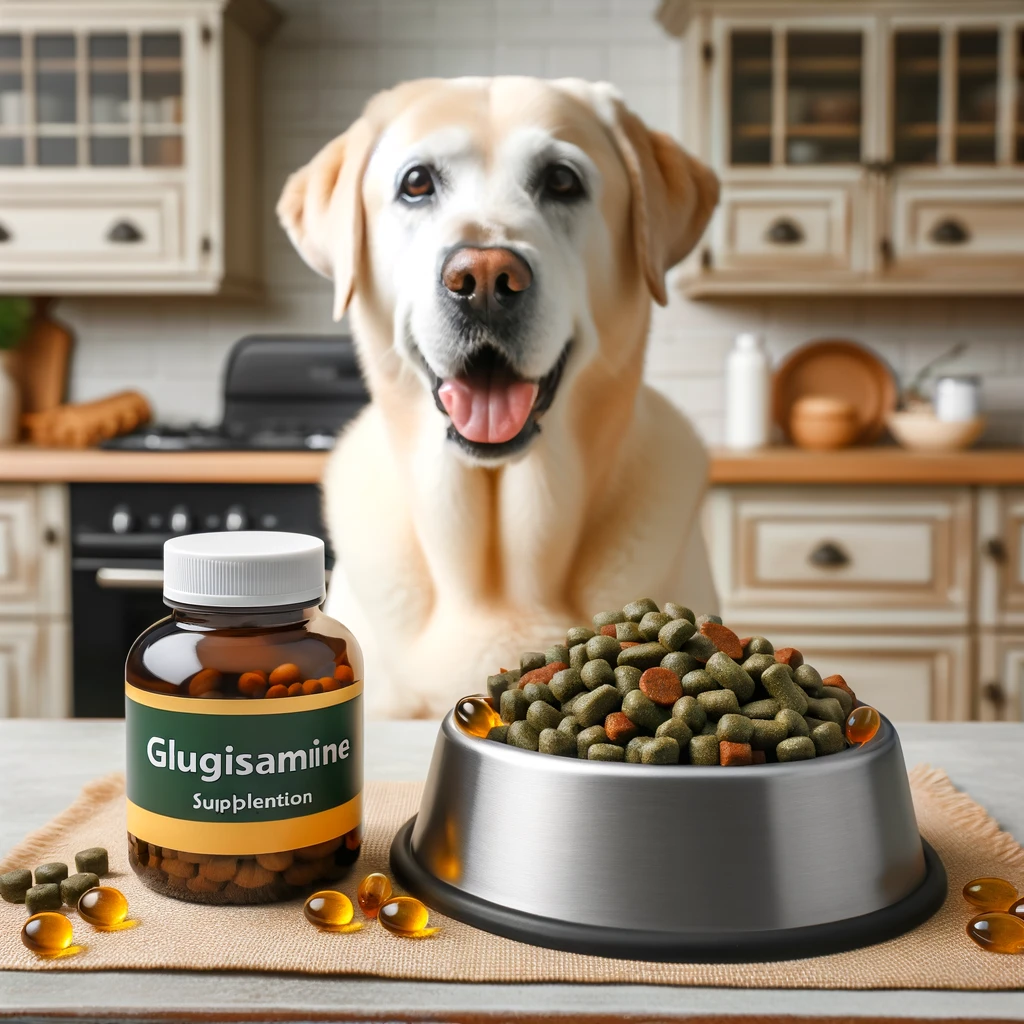
🏋️♂️ 3. Maintain a Healthy Weight
Keep the Pounds Off
Extra weight puts additional stress on your dog’s joints. Keeping your Labrador at a healthy weight is crucial to managing arthritis pain.
Diet Adjustments
Work with your vet to plan a diet that helps your dog lose weight if they are overweight, balancing nutrition with lower calorie intake.
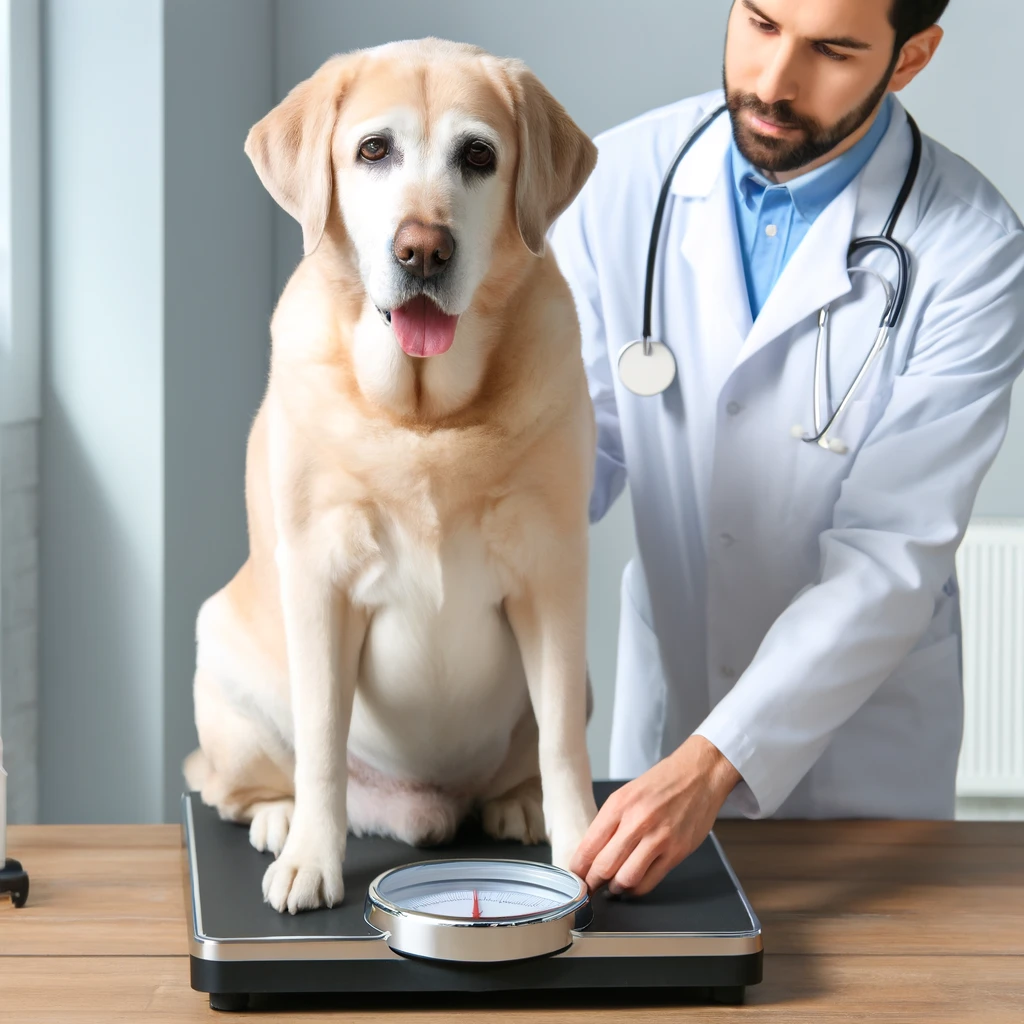
💊 4. Appropriate Medication
Pain Relief
Non-steroidal anti-inflammatory drugs (NSAIDs) are often prescribed to reduce inflammation and pain in arthritic dogs. Always use medications prescribed by your vet, as human medications can be toxic to dogs.
Regular Monitoring
Monitor your dog’s response to medication regularly. Some medications can have side effects, and periodic blood tests may be necessary to ensure your dog’s liver and kidneys are not adversely affected.
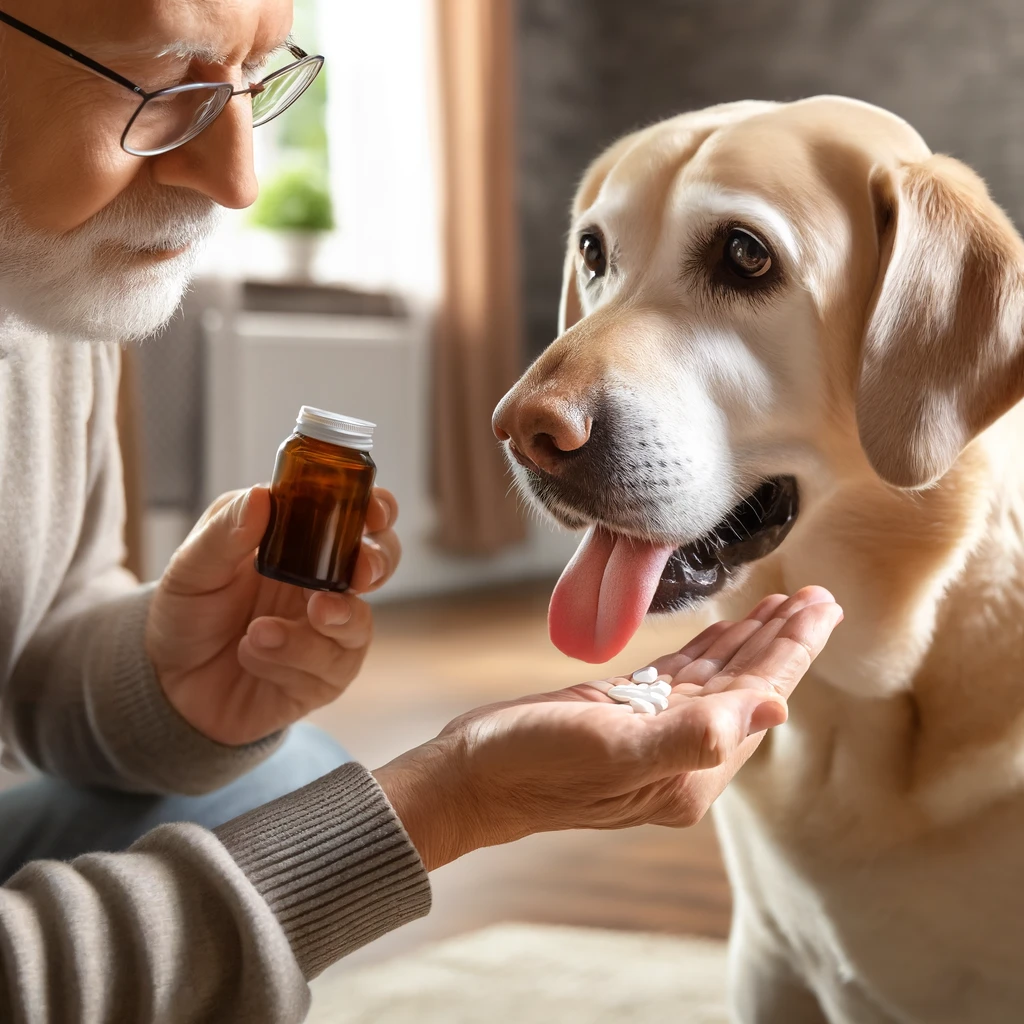
🧘♂️ 5. Physical Therapy
Professional Help
A canine physical therapist can work wonders. Techniques like massage, water therapy, and specific exercises can improve flexibility and reduce pain.
Daily Routine
Incorporate gentle exercises recommended by a therapist into your dog’s daily routine to help keep the joints moving and increase flexibility.
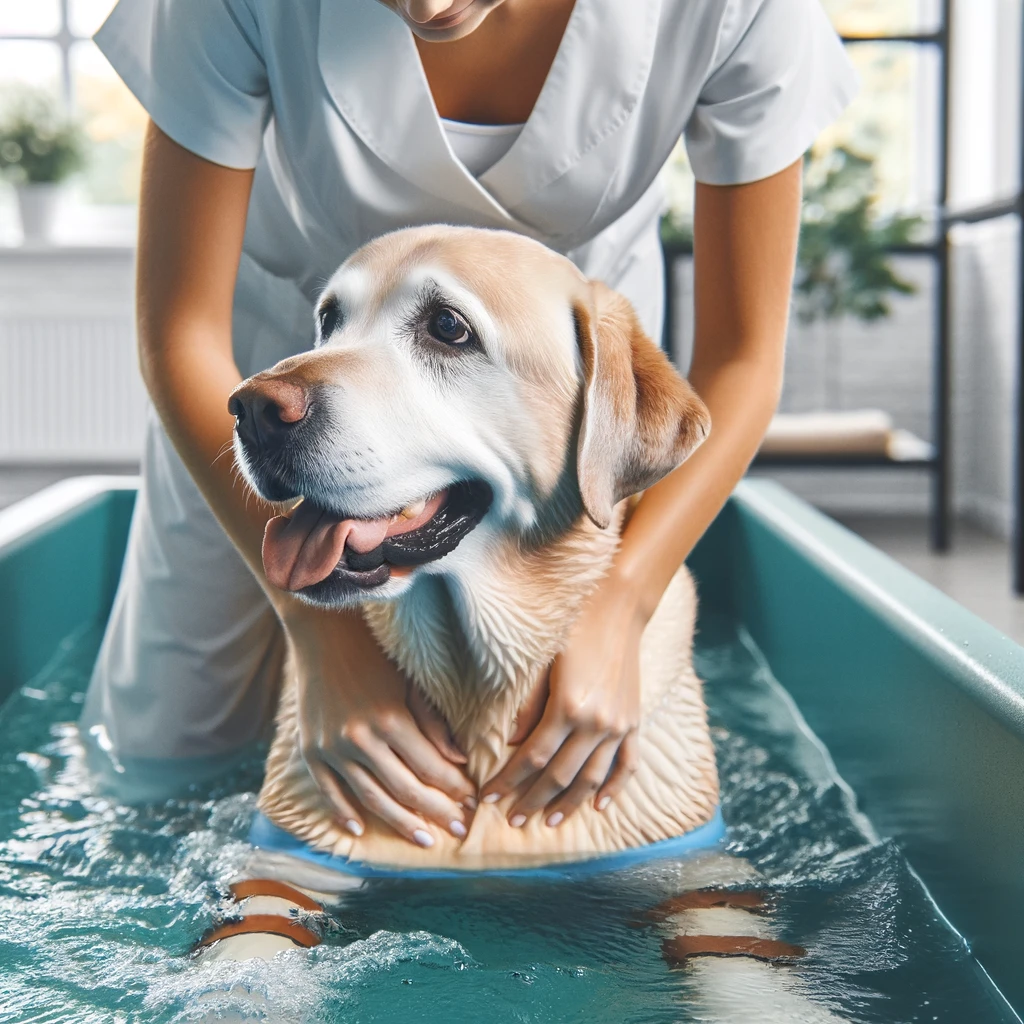
🚶♂️ 6. Gentle Exercise
Stay Active
Regular, gentle exercise helps keep arthritic joints from becoming too stiff. Short, slow walks can keep your Labrador limber without overstraining them.
Avoid Overexertion
Steer clear of high-impact activities that can worsen joint pain. Stick to level surfaces and avoid situations where your dog might overexert, like climbing stairs.
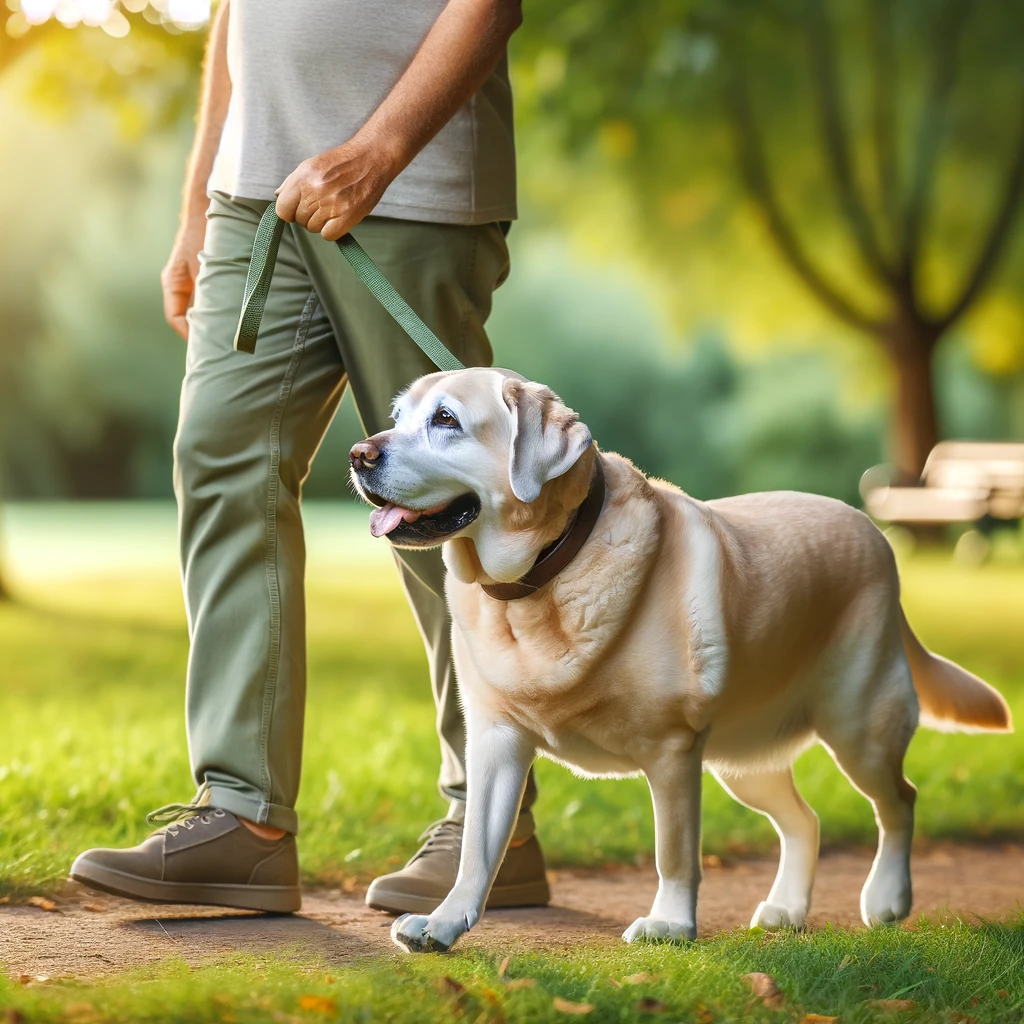
🏠 7. Create a Comfortable Home
Easy Access
Make your home more accessible to your Labrador by using ramps or steps to help them navigate furniture and vehicles. Keep their essential areas like food, water, and bed on one easily accessible level.
Supportive Bedding
Invest in an orthopedic dog bed that provides extra support and cushioning for sore joints. A good bed can make a big difference in comfort.
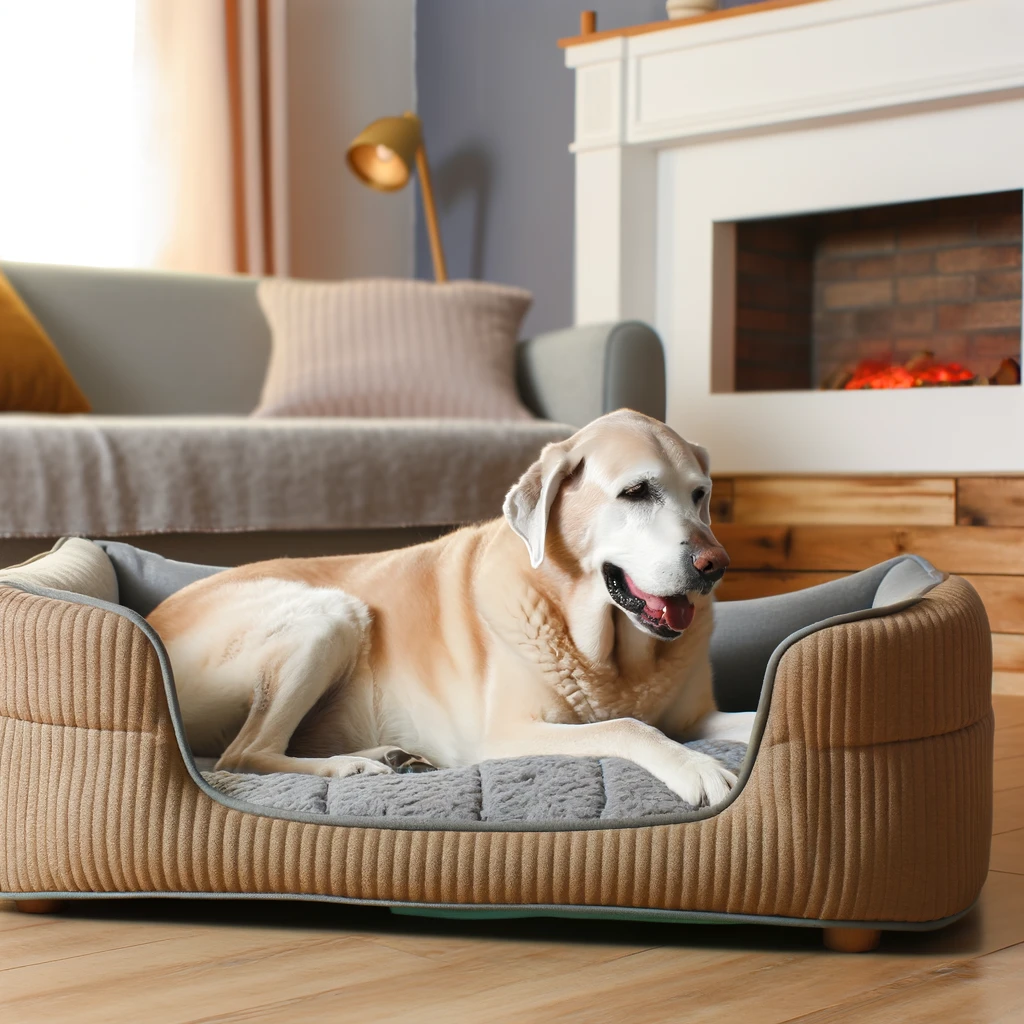
🕶 8. Keep Them Warm
Avoid the Cold
Cold and damp conditions can aggravate arthritis. Keep your Labrador warm and dry to help ease joint stiffness.
Cozy Spaces
Provide a warm, cozy place for your dog to rest indoors, away from drafts. Heated dog beds or blankets can provide additional comfort.
🔍 9. Regular Monitoring for Changes
Keep an Eye Out
Monitor your dog for any changes in mobility or behavior. Any decrease in movement or increase in pain should be discussed with your vet.
Update Your Vet Regularly
Keep your vet informed about your Labrador’s condition. Regular updates can help your vet make necessary adjustments to the treatment plan.
🧽 10. Massage Therapy
Gentle Massages
Learn how to gently massage your Labrador to help alleviate joint pain. Massage can increase blood flow to the limbs and help relieve stress.
Professional Guidance
Consider having a professional show you the proper techniques to ensure you’re doing it safely and effectively.
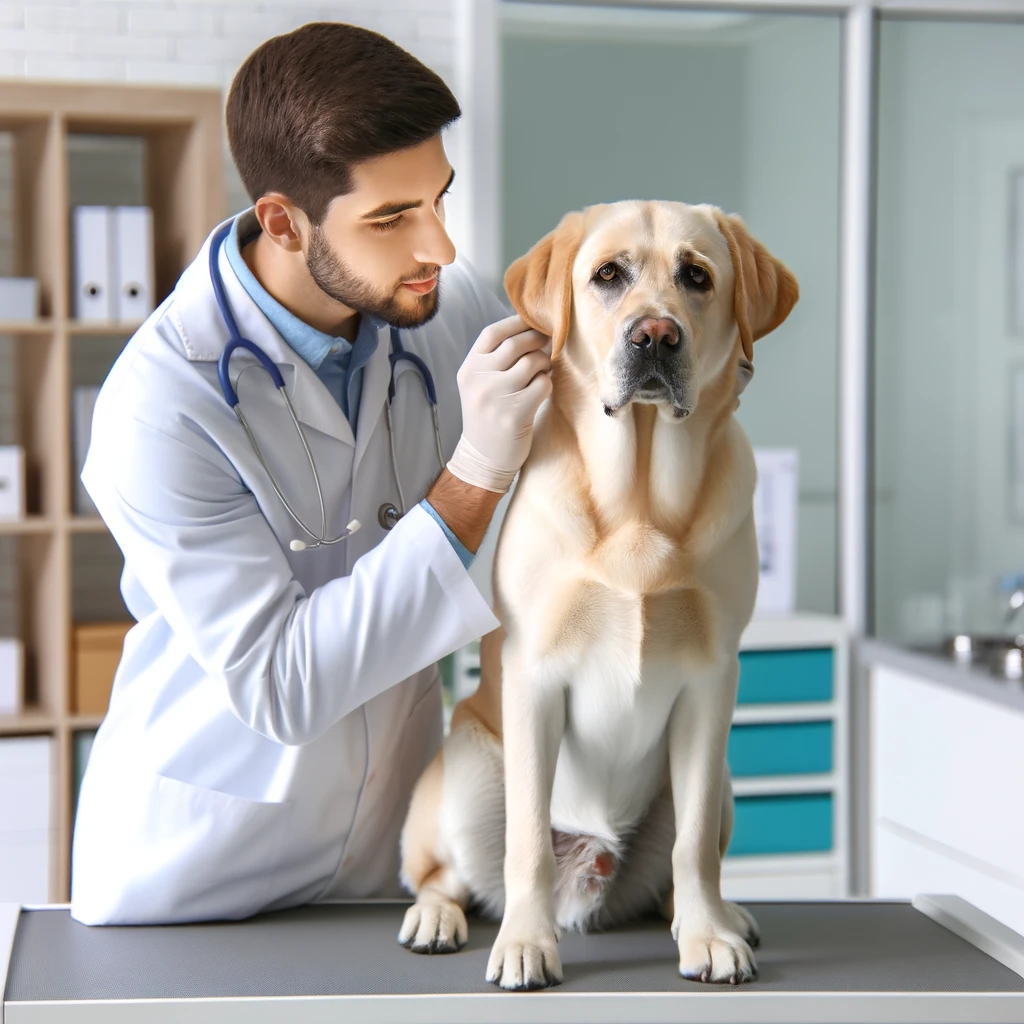
📋 11. Consider Alternative Therapies
Explore Options
Acupuncture and chiropractic care are becoming more popular for managing arthritis in dogs. These therapies can provide relief for some dogs and are worth considering.
Vet Recommendations
Always consult with your vet before starting any new treatments to ensure they are safe for your dog’s specific condition.
Conclusion :11 Easy Tips for Managing Arthritis in Senior Labradors
Managing arthritis in your senior Labrador takes patience and dedication, but it can lead to a happier, more comfortable life for your beloved pet. For more detailed information, check out resources like the American Kennel Club (AKC) and the Canine Arthritis Resources and Education (CARE) for expert advice and support.
Love and care can make a big difference in the quality of life for your senior Labrador. Remember, each dog is unique, and what works for one may not work for another. Stay observant, keep in touch with your vet, and continue to give your furry friend the best life possible!
